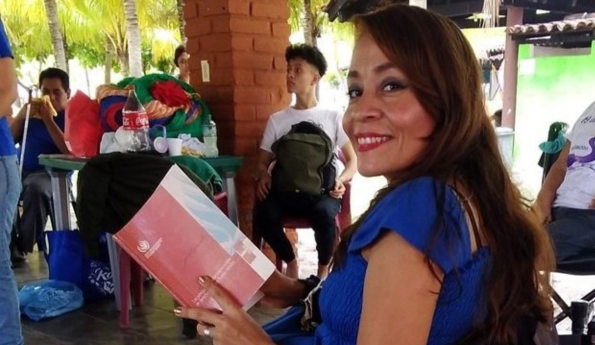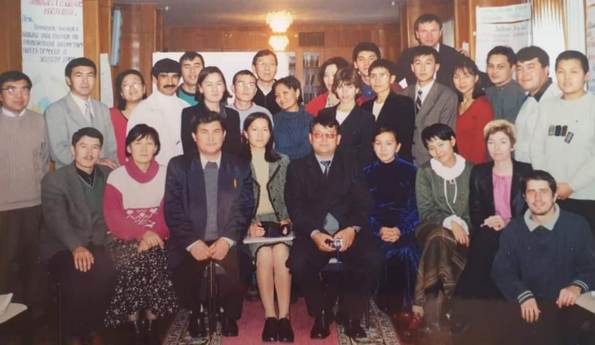By Greta Knapp, Storybank Associate
I recently spent 95 hours in airplanes and airports traveling between Indonesia and my home in Washington, D.C. It was a long way to go, but it was my first chance to attend a CSiI workshop, and that’s the nature of the CSiI initiative: localized learning.
Since April, the Civil Society Innovation Initiative (CSiI) has held five regional workshops around the world, the most recent one in Bali, Indonesia. At Counterpart, we call this project the “Listening Tours” because it brings donors, facilitators and civil society organizations (CSOs) together in one room to hear directly from the “foot soldiers” themselves – those individuals and organizations working every day in their communities – about the ideas they have for strengthening civil society in their region.
Each workshop, including #CSiIBali – (read about it here) – provides a place for civil society leaders to co-design a regional “hub” that will provide support to CSOs in the future. While CSiI will help incubate each hub, ultimately they will be owned and maintained by the people who designed them: local civil society.
As Counterpart staff, I attended #CSiIBali to support the participants working hard to design a hub that could suit the needs of a region as diverse as East Asia and the Pacific Islands. I took to heart my charge to “listen.”
I remember hearing from Rosanna Flamer-Caldera, a civil society leader in Sri Lanka. “I keep thinking, ‘Wow, this is going to be a big one,’” said Rosanna. “With CSiI, the funders are putting their money where their mouth is by involving CSOs in the design process. It’s a great way to start counteracting all the negativity many of us are facing right now in our countries with, for example, authoritarian governments and extremist groups. If this comes together in the way we’ve been envisioning, it’s going to be a huge, huge boost for civil society organizations all over the world.”
Rosanna wasn’t the only one to remind me that civil society has been facing increasing resistance in recent months. Many of the workshop’s participants undertake great personal risk fighting for causes like human rights – and even when those rights are protected by law, they are not always protected in practice. As participant Sevan Doraisamy from Malaysia put it, “We have freedom of expression. We don’t have freedom after the expression.”
Despite the risks, leaders from 16 countries came together in Bali because they believe that joining forces ensures the best chance of achieving long-term, sustainable change. There was a palpable spirit of inclusion and it was an inspiration to witness.
Myron Williams from Fiji explained it like this: “Usually the Pacific Islands are left out when it comes to an Asia-Pacific regional initiative but not here. We were happy to be part of a process that’s going to build on something that will connect us.”
As Rei Firdha Amalia from Indonesia said, “Previously, I’ve only ever attended networking initiatives for the Southeast Asia region, which didn’t include the Pacific Islands. We have many different types of challenges that we face and collaborating to form the best platform will help us understand and support one another. As Asia-Pacific citizens we have a responsibility to support one another.”
Participants were even careful to consider those people and organizations not at the table. Mary Shanthi Dairiam from Malyasia reminded everyone that we must think of cross-border, intersectional partnerships so that marginalized groups will be guaranteed attention. “Even within networks, there can be fragmentation from different interest groups. Local voices can be left out of international conversations and we must take with us and give voice to on-the-ground perspectives.”
Counterpart’s Senior Innovation Advisor Alex Sardar (@alexsardar), who helped facilitate the workshop, said it all when he noted: “We grow from osmosis, we learn from each other. There is richness in our sector when we take a step back from our individual context to connect.”
Just after #CSiIBali, the initiative held its final co-design workshop in Morocco. Once again, civil society leaders put aside their personal and professional lives to travel – this time from across North Africa and the Middle East – to share their insights on a project that will help them work as an inclusive, united force, tackling the challenges that threaten their lives and undermine their futures.
For my part, I am thankful for the chance to learn from those who sacrificed much more than a little time on airplanes to be a part of something that will better people’s lives. I was moved by the courage and determination of people in that room in Bali, driving their own destinies. And I wish for the continued safety of my new friends in the Asia-Pacific who know the risks of their work and yet who forge ahead just the same.
Ninety-five hours in the air, five days on the ground, and some valuable time spent listening will keep me remembering that we are all closer than we realize and we are strongest together.




